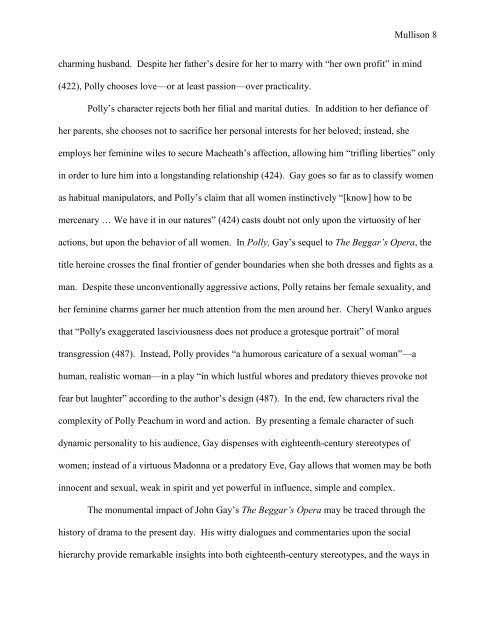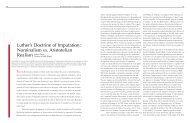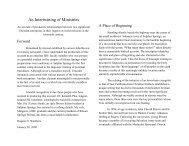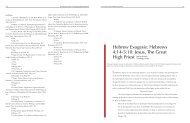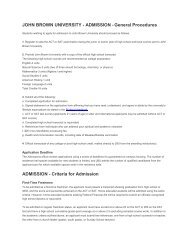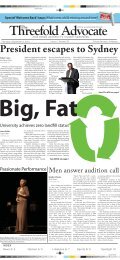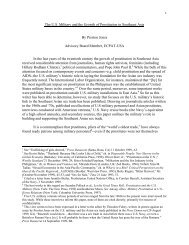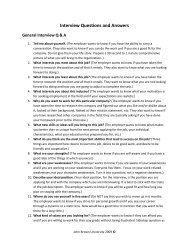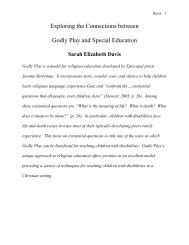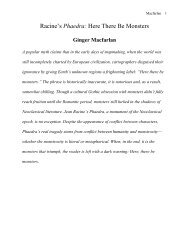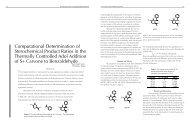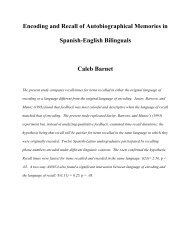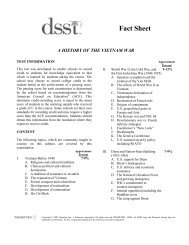Kendra Mullison - John Brown University
Kendra Mullison - John Brown University
Kendra Mullison - John Brown University
Create successful ePaper yourself
Turn your PDF publications into a flip-book with our unique Google optimized e-Paper software.
<strong>Mullison</strong> 8charming husband. Despite her father‟s desire for her to marry with “her own profit” in mind(422), Polly chooses love—or at least passion—over practicality.Polly‟s character rejects both her filial and marital duties. In addition to her defiance ofher parents, she chooses not to sacrifice her personal interests for her beloved; instead, sheemploys her feminine wiles to secure Macheath‟s affection, allowing him “trifling liberties” onlyin order to lure him into a longstanding relationship (424). Gay goes so far as to classify womenas habitual manipulators, and Polly‟s claim that all women instinctively “[know] how to bemercenary … We have it in our natures” (424) casts doubt not only upon the virtuosity of heractions, but upon the behavior of all women. In Polly, Gay‟s sequel to The Beggar’s Opera, thetitle heroine crosses the final frontier of gender boundaries when she both dresses and fights as aman. Despite these unconventionally aggressive actions, Polly retains her female sexuality, andher feminine charms garner her much attention from the men around her. Cheryl Wanko arguesthat “Polly's exaggerated lasciviousness does not produce a grotesque portrait” of moraltransgression (487). Instead, Polly provides “a humorous caricature of a sexual woman”—ahuman, realistic woman—in a play “in which lustful whores and predatory thieves provoke notfear but laughter” according to the author‟s design (487). In the end, few characters rival thecomplexity of Polly Peachum in word and action. By presenting a female character of suchdynamic personality to his audience, Gay dispenses with eighteenth-century stereotypes ofwomen; instead of a virtuous Madonna or a predatory Eve, Gay allows that women may be bothinnocent and sexual, weak in spirit and yet powerful in influence, simple and complex.The monumental impact of <strong>John</strong> Gay‟s The Beggar’s Opera may be traced through thehistory of drama to the present day. His witty dialogues and commentaries upon the socialhierarchy provide remarkable insights into both eighteenth-century stereotypes, and the ways in


